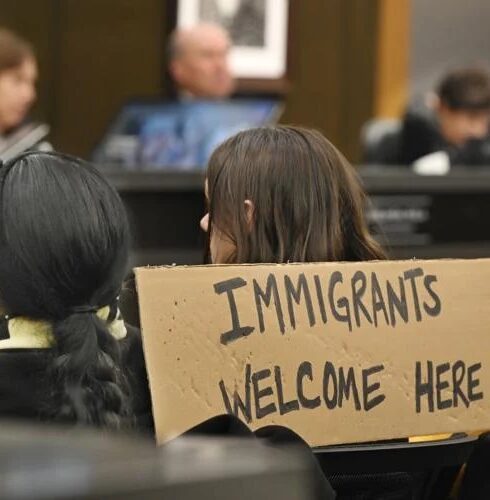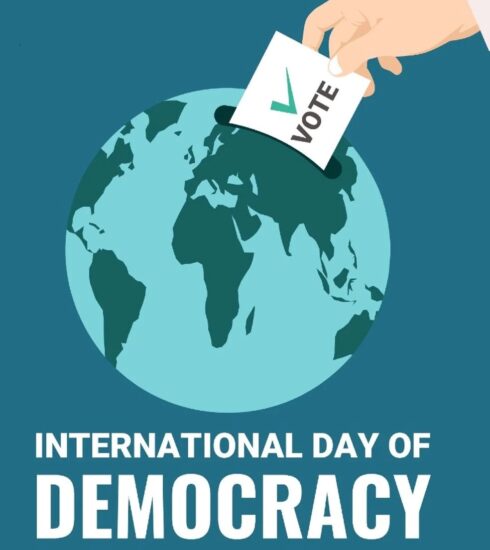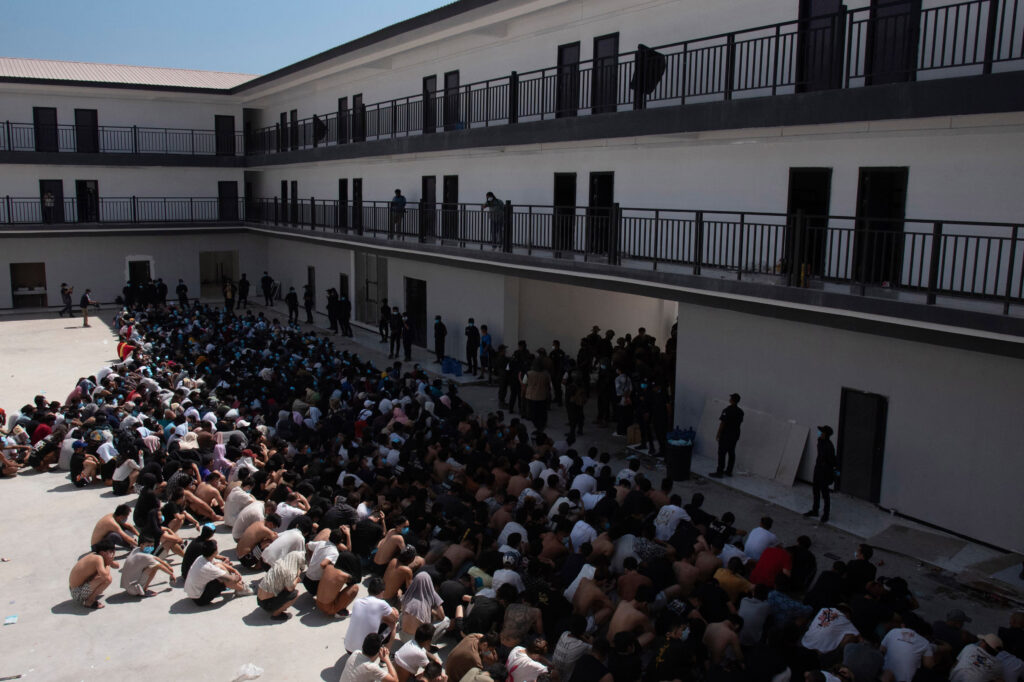
Chinese, Vietnamese and Ethiopians after being rescued in Myawaddy, Myanmar. They are believed to have been scam centre trafficking victims. Photograph: Credit: Reuters
A growing number of Africans from Kenya, Uganda, Eritrea, Tanzania and Ethiopia are being trafficked to Myanmar and other fare east Asian countries, where missing online scam targets leads to beatings and torture.
The recruitment format tends to be the same. They receive an intriguing message about a well-paying job working online in a far-flung corner of Southeast Asia. The salary seems too good to be true. They are told they would be working on computers in an office.
The company would even foot the bill for their relocation to join the firm in any south eastern Asian country like Laos, Thailand, Philippines, Cambodia, Vietnam or Myanmar.
But once they land in the country ready for the job, reality sets in. The promised dream job rapidly becomes a nightmare when the international passport and other important travel documents are seized on arrival by the new employers. With the international passport confiscated and threats of physical harm ever present, they endure months working inside a compound which they cannot leave.
They are then set to work every day for the next three months, forced to send thousands of messages from fake social-media profiles, posing as a rich American investor to swindle US real estate agents into cryptocurrency scams. Whenever they fail to reach daily targets, they are beaten, locked inside a freezing-cold room and deprived of food for up to two days or more.
These are the stories of a lot of Africans about the booming online cyber-scam operations in Southeast Asia – an industry that is believed to have enslaved tens of thousands of workers lured with the promise of decently paid jobs in online sales and the information technology industry.
The situation has reached the level of a humanitarian and human rights crisis as many of these victims are killed and sometimes sold to other fraudulent operations like prostitutions, manual labor or drug peddling. These workers are not freed unless a ransom is paid by their families and that if they try to escape, they are often tortured or killed with total impunity and with corrupt government officials complicit.
Once trafficked, victims are deprived of their liberty and subjected to torture, ill treatment, severe violence and abuse including beatings, electrocution, solitary confinement and sexual violence.
Cyberslavery compounds have proliferated in south east Asia over the last decade, and have become a very attractive venture for crime syndicates all over that region. The UN estimates that at least 800,000 people are trapped in cyberscam compounds across South East Asia, while trafficking experts and rescue groups report that crackdowns have made little dent in the industry.
The centres are run mainly by Chinese criminal gangs, often with the complicity of the security forces of those countries.
Finding and freeing trafficked people is an operation involving multiple governments, militias and police forces. The Thai authorities have facilitated the release of thousands of trafficking victims, and east African governments have been increasingly coordinating with Thai officials, who can liaise with the Myanmar military regime and militia forces across the border.
The victims are released into Thai custody only when their government of origin agrees to take responsibility for repatriating them, including paying for flights home.
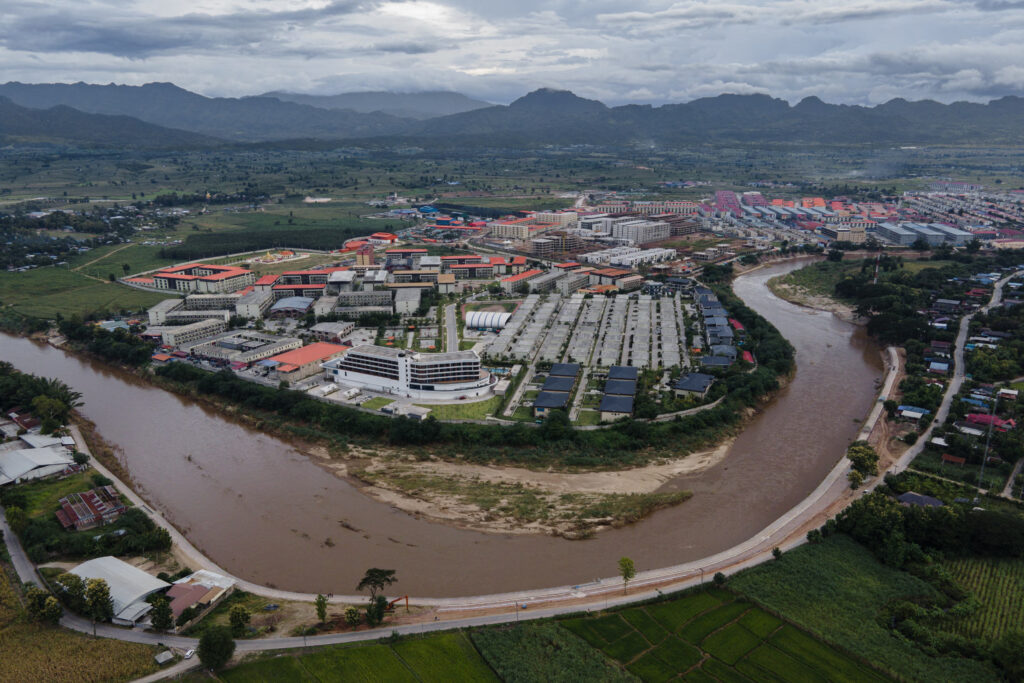
KK Park is a rapidly expanding scam centre in Myawaddy, on Myanmar’s border with Thailand. Credit: Reuters
Since 2020, south-east Asia’s cyber-slavery industry has entrapped hundreds of thousands of people and forced them to perform “pig butchering” – the brutal term for building trust with a fraud target before scamming them. At first, the industry mostly captured Chinese and Taiwanese people, then it moved on to south-east Asians and Indians – and now Africans.
Criminal syndicates have been shifting towards scamming victims in the US and Europe after Chinese efforts to prevent its citizens being targeted, experts have said.
That has led some trafficking networks to seek recruits with English-language and tech skills – including east Africans, thousands of whom are now estimated to be trapped inside south-east Asian compounds, an official of the UN Office on Drugs and Crime’s representative for south-east Asia and the Pacific revealed.
As public awareness grows in each country, it also becomes more difficult to recruit there. “It’s much more difficult these days to recruit huge numbers of people from, let’s say, India,” the official also revealed. That’s also why we’re seeing this increase in people from Africa.
Between January and June, the Kenyan government repatriated 350 citizens from Myanmar, according to a principal secretary for Kenya’s state department for diaspora affairs – a big rise on the 150 trafficked Kenyans rescued from across south-east Asia between 2022 and 2024. Hundreds more Africans have returned to other countries including Ethiopia and Uganda.
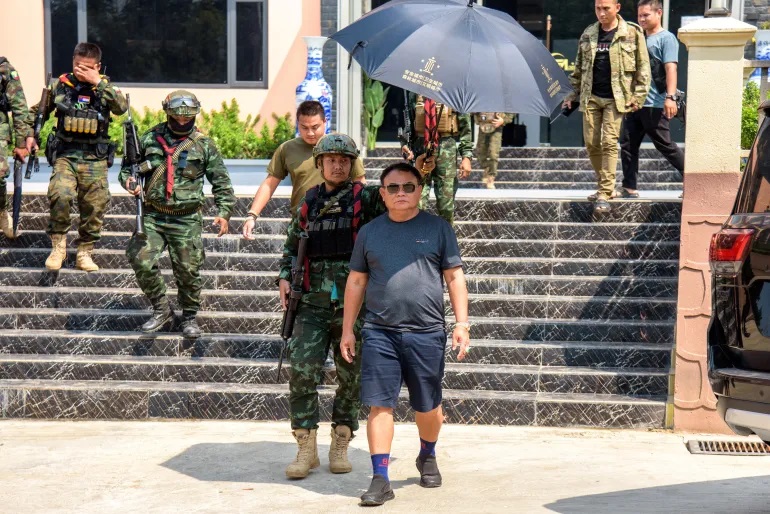
The US recently imposed sanctions on Myanmar rebel leader Saw Chit Thu (centre), his two sons and the armed group he leads, the Karen National Army. The US Treasury said Saw Chit Thu and the KNU, which is based in Shwe Kokko – a so-called “Special Economic Zone” along the Thai-Myanmar border – leased land and provided security for online scam compounds. Credit: Reuters
In Kenya, roughly 80% of people are under the age of 35 and unemployment is high. President William Ruto’s government has promoted labour export programmes as a fix, with a recent survey finding that four in 10 young Kenyans have considered migrating.
Modern slavery recruiters have capitalised on the government’s migration push, targeting Kenyans and East Africans via online job ads, social media and in texts, or by in-person visits to rural areas.
While Thailand has helped thousands of people, repatriating them is expensive and challenging. After taking custody of the workers at the border, Thai officials establish that they are victims of trafficking before releasing them to their home countries, which must be prepared to coordinate and pay for their travel.
Scam syndicates have exploited the gaps in East Africa’s diplomatic representation to discourage victims from seeking help as most of these East African countries do not have embassies in the majority of South East Asia which in turn limits their ability to locate victims in that region.




